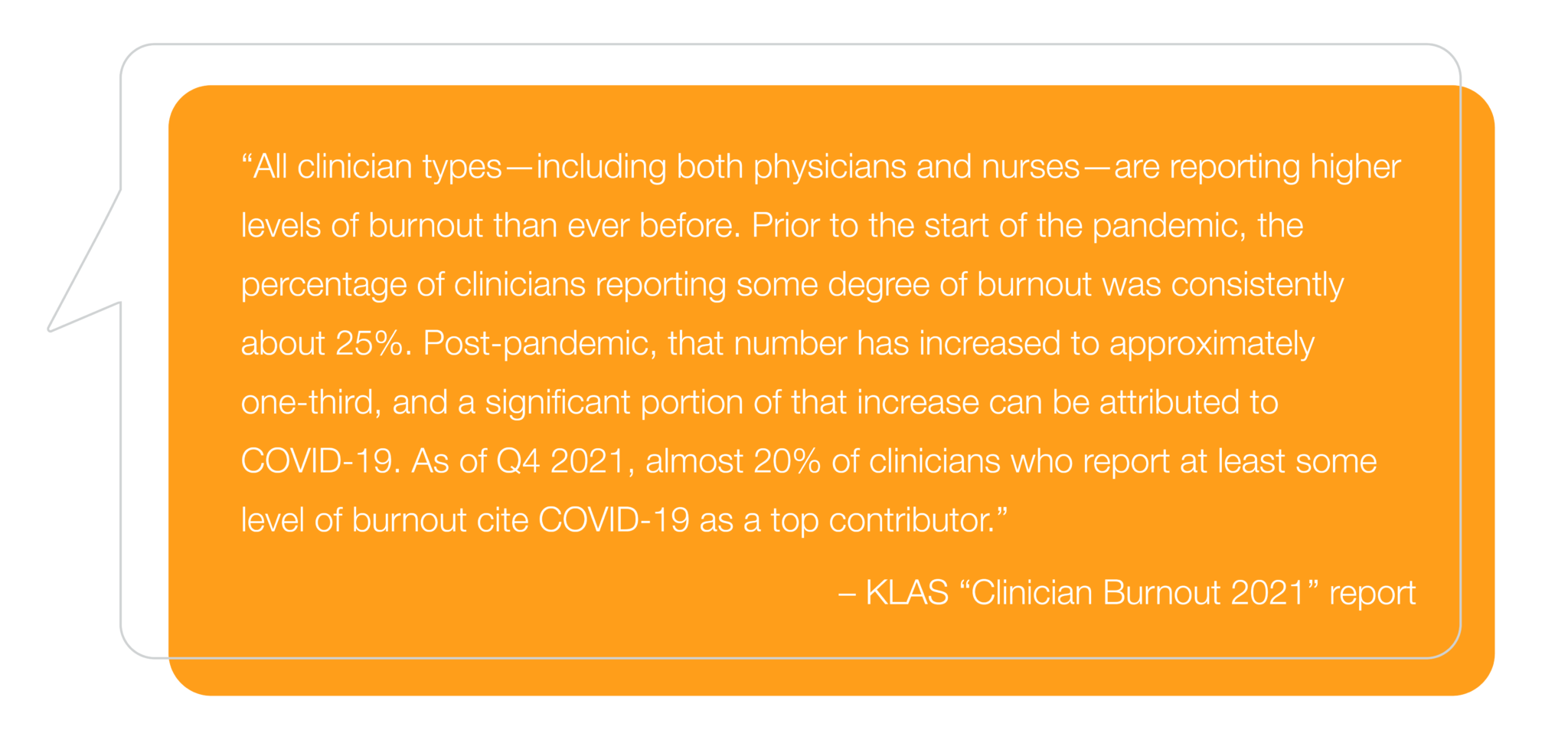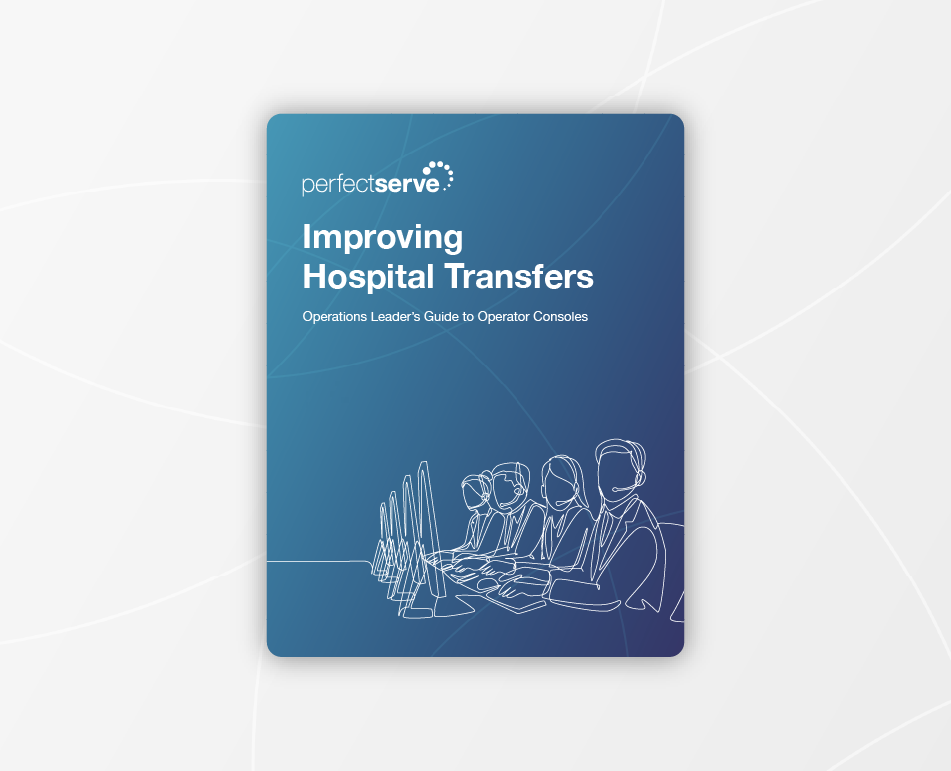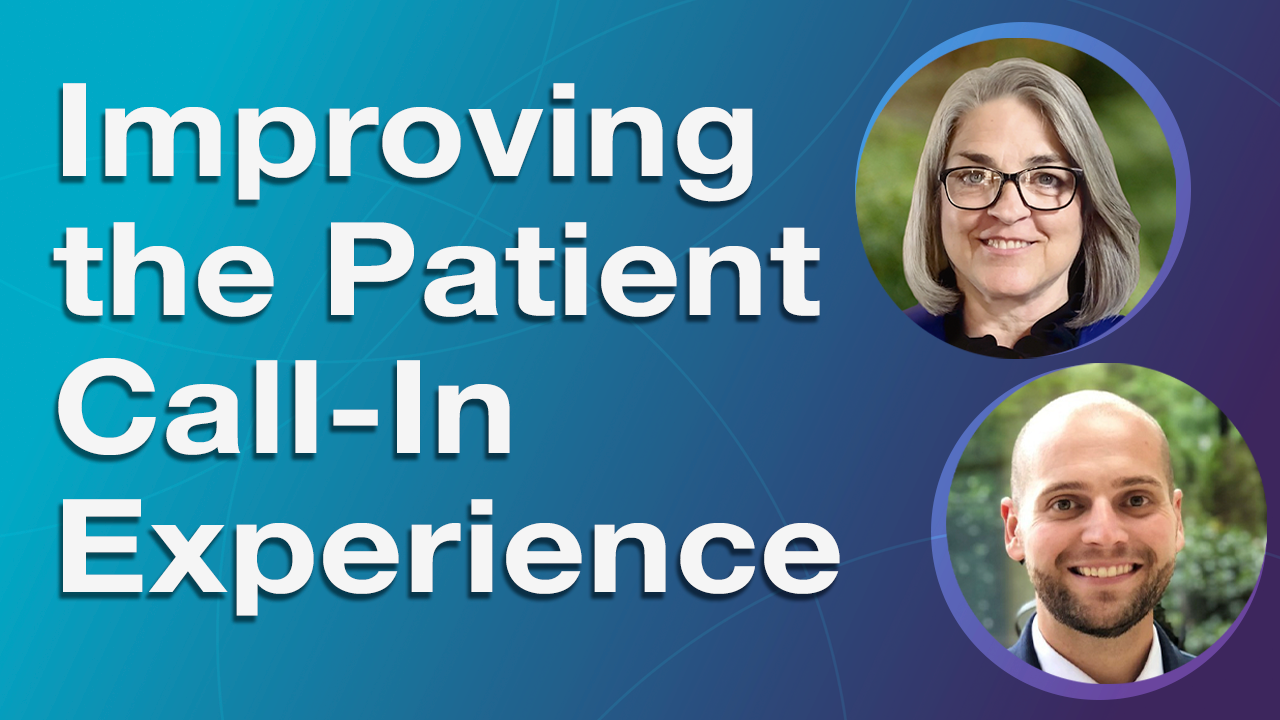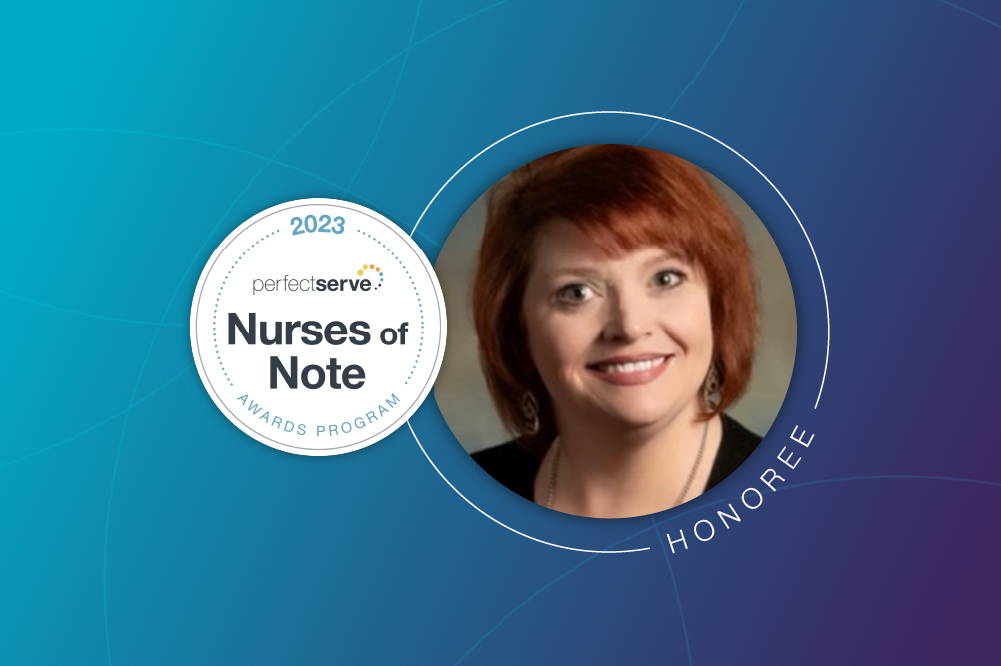Ochsner Health Drives Physician Engagement, Reduces Burnout With Better Schedule Management
TABLE OF CONTENTS
The subject of healthcare burnout is not new. In fact, according to the KLAS “Clinician Burnout 2021” report¹ published in December, burnout levels are higher than ever, with the pandemic being a prime contributor:

For physicians in particular, KLAS notes that one of the biggest contributors to burnout is having no personal control over their workload. Taking care of patients is rewarding, but doctors aren’t robots—they need to rest and recuperate, and during times of elevated stress, they need to know there’s a light at the end of the tunnel.
At the recent ADVANCE 2022 conference hosted by the American Society of Anesthesiologists, New Orleans-based Ochsner Health presented research and findings² that demonstrate how PerfectServe’s Provider Scheduling powered by Lightning Bolt can help to stem the tide on burnout and loss of control.
At Ochsner, Lightning Bolt “significantly improves physician engagement and reduces burnout by creating fair and flexible schedules that support work-life balance—even during the COVID-19 pandemic.” The results presented by Dhruv Choudhry, M.D., lead author of the study and anesthesiology resident at Ochsner, are powerful:
1. Six months after implementing Lightning Bolt for a department of 60 anesthesiologists, a Press Ganey survey revealed that their average engagement score had increased by nearly 30%, from 3.3 to 4.2 out of 5. This was one of the largest increases across the Ochsner Health system.
2. Lightning Bolt drove this increase by granting more vacation days, reducing ungranted vacation days, and providing more predictability and flexibility than the prior staff-created scheduling system.
3. Compared to the previous manual scheduling process, which required 60 to 75 staff hours per month on average, Lightning Bolt auto-generates “the best schedule for the department” in just 14 hours. Collectively, that’s two and a half days of staff time saved per month and 30 days saved over the course of a year.
Anecdotally, Dr. Choudhry also reported that Lightning Bolt gives anesthesiologists “one or two mornings and one or two afternoons off a month to allow for increased work-life balance so they are better able to attend events important to them.”
Talking more specifically about the pandemic, Dr. Choudhry noted that Lightning Bolt allowed Ochsner to quickly and seamlessly build schedules for COVID ICUs as they were opened. Physicians could also indicate in the system whether they preferred to work in the operating room or the ICU, which added a degree of control to an often-uncertain situation.
In addition to the results Ochsner presented at the conference, the organization has seen other notable improvements after implementing Lightning Bolt:
- Auto-generation and publication of schedules through Lightning Bolt saves Ochsner roughly 720 hours per year versus previous scheduling methods.
- Vacation request approval has increased by 55%.
- Lightning Bolt has improved OR case handoffs, saving Ochsner $600,000 per year.
- The use of reporting has allowed for greater transparency and helps physicians to better understand equalization rules. For example, it’s easy to demonstrate that weekend work is being evenly distributed to avoid any one person feeling like they’re shouldering too much of the load.
- Integration with Epic On-Call Finder has improved transfer center operations and yielded better speed to care for patients.
Taken as a whole, Ochsner’s experience with Lightning Bolt is a strong endorsement of advanced scheduling technology and the many ways it can improve the lives of providers, staff, and patients. When providers have more control of and better visibility into their schedules, and when they know those schedules can be built equitably while accounting for their personal preferences, they are more likely to be satisfied at work. Greater provider satisfaction often leads to better patient care, better retention, and better metrics across the board.
We thank our friends and partners at Ochsner not only for presenting their findings, but also for reminding us that healthcare technology has the power to change, improve, and even save lives every day.
Ready to learn more about transforming your organization through better scheduling?
Citations
- Clinician Burnout 2021, KLAS Research Arch Collaborative, Jacob Jeppson, Dec. 3, 2021: klasresearch.com/report/clinician-burnout-2021-covid-19-increasingly-cited-in-rising-burnout/2080
- Using AI to create work schedules significantly reduces physician burnout, study shows, American Society of Anesthesiologists, Jan. 28, 2022: asahq.org/about-asa/newsroom/news-releases/2022/01/using-ai-to-create-work-schedules-significantly-reduces-physician-burnout




